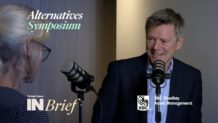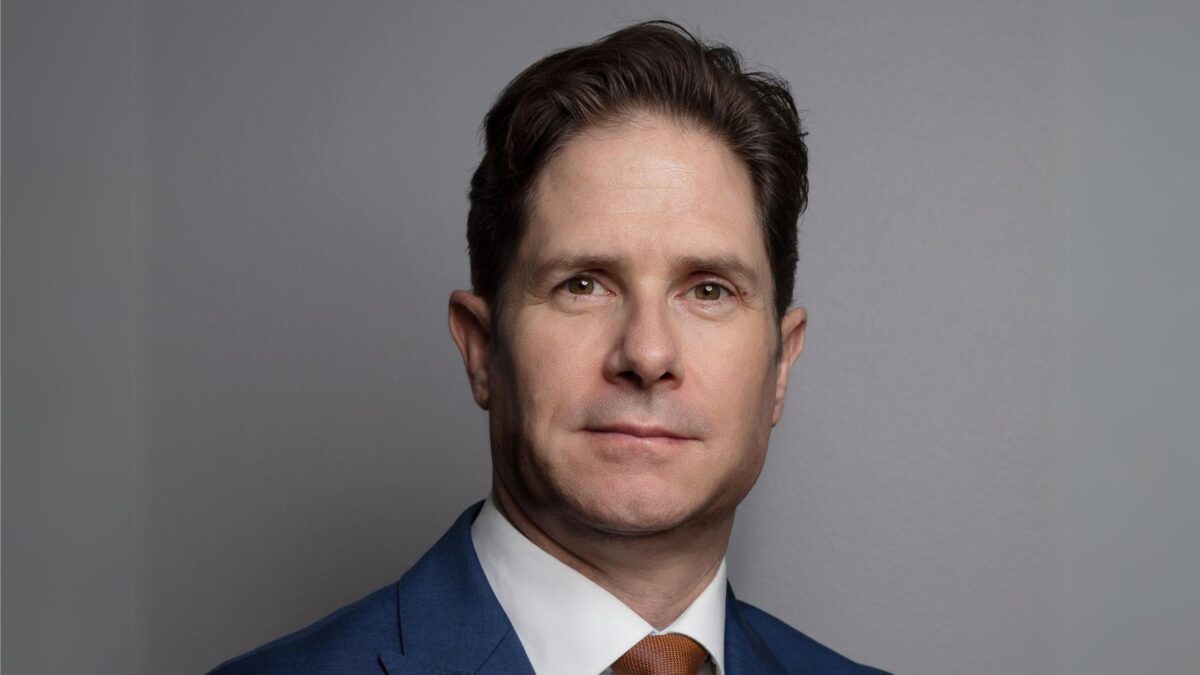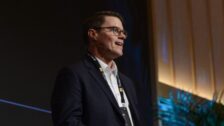Rate hike ‘changes the journey not the destination’
The Reserve Bank’s decision to hike interest rates by more than 50 basis points, double that predicted by the majority of economists “changes the journey, not the destination,” according to Charlie Jamieson of Jamieson Coote Bonds. Speaking at an intimate event alongside industry leaders Giselle Roux and Mark Burgess, Jamieson warned of the difficulty policymakers face in the economy reaching “escape velocity.”
The consensus among some of the finance industry’s brightest minds was that policymakers, particularly central banks may have “stayed in those (loose) settings for too long.” However, this was balanced by commentary from Giselle Roux, outlining the incredible uncertainty that surrounded conditions at the time. This commentary was echoed by Burgess, previously a CEO of the Future Fund, who noted that central banks have become “great at navigating crises.”
Inflation naturally remained the topic of the day, particularly given expanded commentary from Reserve Bank of Australia governor Philip Lowe, with pandemic-era supply-side issues exacerbated by a double-whammy of energy and food inflation due to the extended war in Ukraine. Jamieson reiterated the challenge of using the “blunt instrument” that is the cash rate in an attempt to temper demand despite the inflation situation being “very complex.”
With risk-free rates being raised very rapidly, bonds have seen their worst year “by a factor of” with the result being the worst performance for long-duration fixed-income in several decades. Burgess flagged the broader economic impacts of this, being the fact that low interest rates “makes capital free,” with said multiplier resulting in excess capacity going into many sectors. One such example was the success of streaming leader Netflix, with access to cheap capital seeing no less than eight competitors enter the market in a short period of time. Even a “slight change” in the cash rate has brought some “excesses into question.”
Looking back at history, it has traditionally taken more than a dozen rate hikes before the US yield curve inverted, which has presaged a recession, yet in this case it has occurred just 13 days after the first hike. At present, the cash rate is predicted to be 3.7 per cent in the US in 12 months, something Jamieson flagged as the “best yield environment” he has seen as a manager since founding the company in 2013.
He says 2.5 per cent in the US has traditionally been the cash rate that “challenged’ investment markets in previous cycles, 2018 for instance, which suggests the cap on rates may be higher than the market is currently predicting.
The selloff “has been brutal but not surprising,” said Burgess, while highlighting the growing opportunity for advisers and asset allocators to add value through portfolio construction, asset allocation and manager selection. In fact, he expects a large portion of returns to come from investment selection in the years ahead.
Roux was circumspect on the topic of an impending recession, noting the technical definition (consecutive quarters of shrinking GDP) offered little in the way of insight given Australia’s reliance on exports. She highlighted private credit as being the beneficiary of a reduction in fixed-income allocations, but flagged potential risks in how this market responds to changing economic conditions and potential problems in the property sector.
Roux left the audience with an important question around tactical asset allocation, asking delegates about their willingness to be “tactical” and “tolerance to accept that their timing may be wrong” when looking at current opportunities to increase risk exposures.











